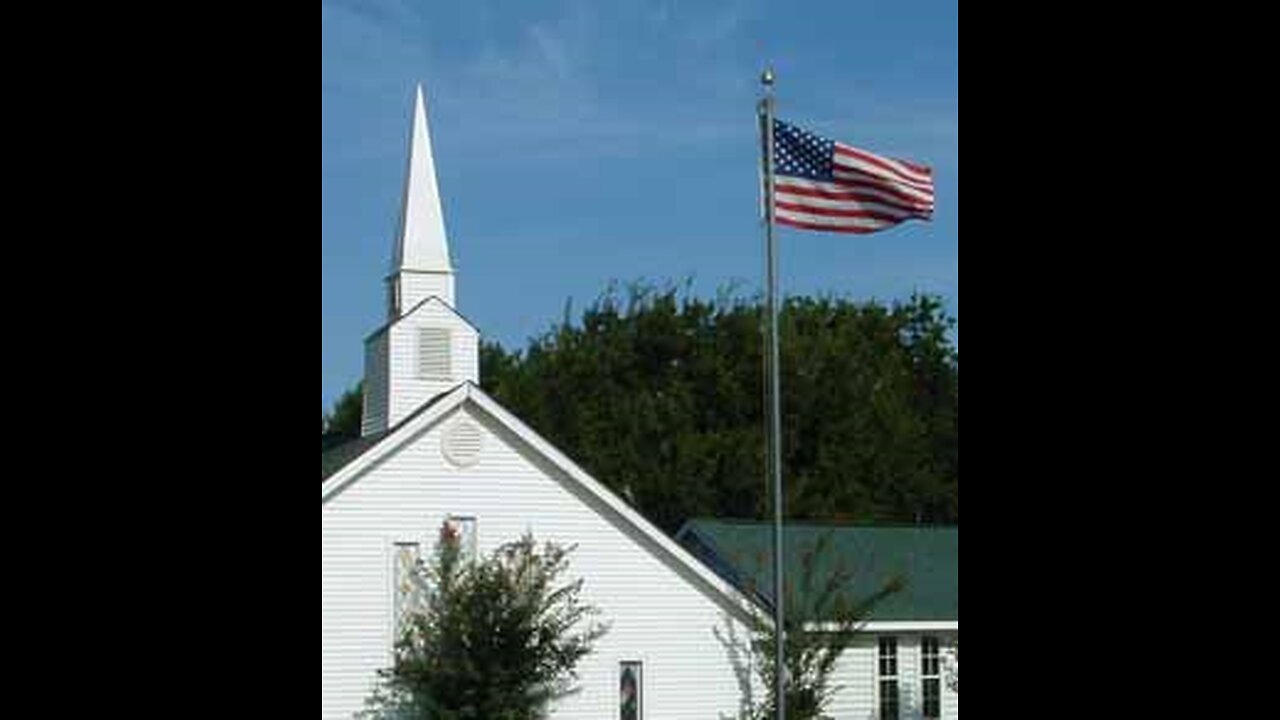Premium Only Content

ROMANS # 387, Paul had enthusiasm for presenting the gospel and engaging with people. (1-2-25)
-----Complete notes can be downloaded from our website - www.countrybiblechurch.us
-----You may contact us at countrybiblechurch.us@gmail.com or cbcbrenham@gmail.com
Guided by Grace - By Joel E. Kim
Like many people, I have become completely dependent on my phone’s GPS to help me navigate the traffic in southern California. I love it when my GPS says, “You’re on the fastest route and your route is clear.” If only our faith journeys were this easy, with clear directions and turn-by-turn guidance to God’s destination for our lives.
In the closing verses of Romans, Paul does not provide detailed directions for every step of our lives, but he does alert us to signs we should heed. These markers guide us along a trajectory of grace.
What do these signs have in common? They all point to the providence and sovereignty of God: He is in charge and we are not. Our God is able and faithful, and our response should be to depend on him.
First-Century Resumé
Pray for those who minister to you. Ask God to reveal ways you can support their ministry.
Since its inception in 2004, Facebook has become an essential tool for connecting with people. In a way, Romans 16—a chapter sometimes treated as unnecessary for the church—functions like a first-century Facebook, establishing personal connections between Paul and the be-lievers in Rome (most of whom he had not met). By offering this extensive list of mutual friends, Paul is able to recommend himself to the congregation.
What can we learn from this chapter full of names? For one, the Roman church was very diverse. Out of the 26 people named, nine are women. Perhaps this doesn’t seem so unusual, given that women often make up the majority in our churches today. However, it might be surprising to learn that slaves or “freedmen”—former slaves who were given freedom—make up the majority of the names in Romans 16. (In the first century, names were often associated with certain social or economic classes.) Imagine sitting in church and worshiping with a slave. Given the homogeneous nature of our most of our churches, such diversity is difficult to imagine.
-
 LIVE
LIVE
Donald Trump Jr.
3 hours agoFull Coverage of My Father’s Inauguration, America is Back. | TRIGGERED Ep.209
19,574 watching -
 LIVE
LIVE
The Quartering
21 hours agoTrump Inauguration LIVE Broadcast & Commentary With DecoyVoice, Hannah Clare & Styxhexenhammer!
4,532 watching -

Donald J. Trump
1 hour agoThe 60th Presidential Inauguration Ceremony
158K310 -
 LIVE
LIVE
Steven Crowder
3 hours ago🔴 Crowder Inauguration Day Live Stream 2025 | The Return of Donald Trump!
126,262 watching -
 LIVE
LIVE
GOP
11 hours agoThe 60th Presidential Inauguration Ceremony
8,144 watching -
 LIVE
LIVE
Right Side Broadcasting Network
6 days ago🔴 LIVE: The Inauguration of Donald J. Trump as the 47th President of The United States 1/20/25
106,000 watching -
 LIVE
LIVE
Redacted News
3 hours agoLIVE INAUGURATION DAY COVERAGE | Trump officially takes office
9,191 watching -
 1:04:17
1:04:17
The Dan Bongino Show
3 hours agoTrump's Historic Inauguration - LIVE FROM DC (Ep. 2404) - 01/20/2025
669K1.2K -
 LIVE
LIVE
LFA TV
21 hours agoLIVE: INAUGURATION OF PRESIDENT DONALD J. TRUMP
6,849 watching -
 1:07:17
1:07:17
Nerdrotic
2 hours ago $5.25 earnedReturn of the KING! - Nerdrotic Nooner 459
71K2